Guide To Development Leadership Qualities and Corporate Wellness
Are you confused about what leadership qualities you need to have?
Are you overwhelmed with the lists with dozens (and sometimes hundreds) of leadership qualities that are described as: necessary, essential or desirable?
Do you want to take up a leadership role and desire clarity around your choice?
It can be hard to know.
Do you want to be empowered in your decision?
If you are thinking of taking on a leadership role and wondering whether or not you have the requisite leadership skills and qualities.
If you are wanting to understand more about leadership qualities.
If you are keen to suss out those personality traits, characteristics and attributes ascribed to great leaders that perhaps you need to have.
Or.
You simply want to learn more about the topic of leaders, leadership and how leadership qualities have evolved.
You’ve come to the right place.
This guide will fill in some of that missing data for you.
I know you’ll find this useful.
Let’s get going.
Table Of Contents
- Understanding the ‘Why’ of Good Leadership Qualities?
- How Can You Evaluate if You Don’t Define Your Terms?
- How Nurture v Nature Influences Your Path
- What’s to Learn About Leadership Qualities
- Is There a Consensus on “Good” Leadership Qualities
- Surprising Results of Who Displays “Good” leadership Qualities
- Can “Bad” Leaders and “Bad” Leadership Qualities really Be Articulated?
- What You Need to Work On
- Where to Find the Best Leadership Education
- What Style of Leader Are You?
- The Final Analysis
- Dream of Becoming a Leader?
Click here for your PDF copy of the Leadership Qualites – The Ultimate Guide
1. Understanding the “Why” of Good Leadership Qualities
Simon Sinek ‘s: Start With Why states that
…”in any endeavour, at some stage you need to know your why.” Sinek suggests starting with your “why”, not your “what” or your “how”.
If you want to become a leader, a good or great leader, then you will need to have certain skills, talents, abilities and qualities. You will need to hone those skills and qualities. You will need to be open to continual learning and development.
You will firstly need to understand your own leadership style, and whether you are natural born leader or “learned” leader. If so, you will need to put in more work in order to develop ideal leadership qualities.

What is you “why”? Why do you want to become a leader? Why are certain leadership qualities more desirable to have than others?
The emphasis on desirable leadership qualities has become more prominent due to the competitive nature of growing businesses. It has been observed that having the best leader and identifying potential leaders within corporations, and developing those leadership skills, lays the foundation for businesses to grow and become great. (See Jim Collins’ book: Good to Great )
John C Maxwell in his book titled: The Five Levels of Leadership
…identifies five levels of leadership:
- Position – people follow because they have to (they have a job)
- Permission – people follow because they want to (they identify a guru)
- Production – people follow because of what you have done for the organisation (by company reputation – a good place to work)
- People Development – because of what you, as a leader, have done for them personally (a mentor, a respected member of a community), or
- The Pinnacle – because of who you are and what you represent (qualities of a natural leader, or those qualities that have been developed and honed over time)

You can see there is a progression. Where in your journey are you starting? Note that you need to upskill at every level.
From the following in-depth discussion, find out about the various elements of leadership and leadership qualities. This will help you make an informed decision about what your first (or next step) will be in this journey through the discussion on leadership qualities.
In summary: Becoming a “good” leader is a progressive learning task. To help steer your way you need to know why you want to take on that role. You want to know the “why” of the corporation – what is their goal, their vision, their purpose and strategies. You want to know that you can contribute in some way to achieving those tasks.
You will also need to know if you are a natural born leader or a person who needs to develop or adopt these leadership qualities. This naturally leads us into the defining our terms so we are all speaking the same language and coming from the same understanding of leadership and leadership qualities.
2. How Can You Evaluate If You Don’t Define Your Terms?
A leader is someone who leads or commands the group, organisation or country.
Necessarily, it implies that the person who is at the front of the group has superior skills to do that job e.g. the choir master, the scout leader, the meditation facilitator.
This means that theoretically, anyone can be a leader, at a particular point in time, with the relevant and superior skills, and who wants to, or is willing to direct the group during some exercise.
Leadership is the action of leading the group. Guiding, giving direction. It is the state and art of being a leader.
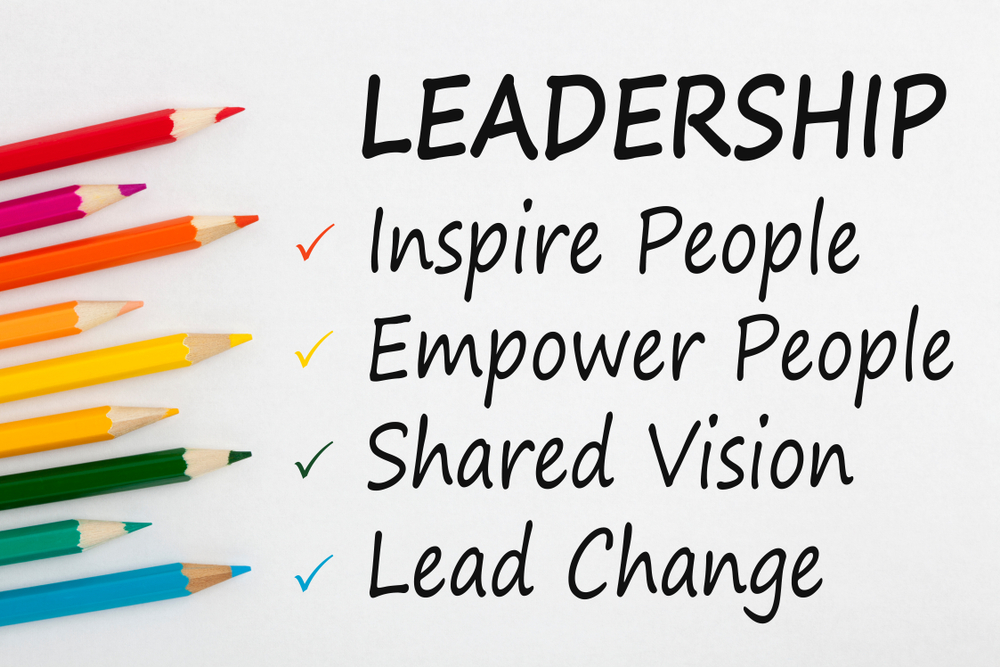
So, Leadership is the art of motivating a group of people to act towards achieving a common goal. This definition implies certain skills, talents and abilities and qualities.
*For an interesting expose on leadership and the definitions see Kevin Kruse’s article.
Kruse states that:
“Leadership is a process of social influence, which maximises the efforts of others, towards the achievement of a goal.”
You can see that this particular definition matches up with the commonly held dictionary definition above.
A quality is a standard of something which is measured against other things of a similar kind.
So, in order for lists of leadership qualities to emerge, there must exist either lists of real or actual qualities, or lists of intrinsic qualities that a large number of people have agreed upon.
Leadership qualities generally implies that those who are defined as “leaders” have generally accepted traits, personality attributes, characteristics, and skill, whether “innate” or “learned”.
The list of Leadership Qualities has expanded over the years, particularly since the 1980’s when leadership education schools developed and became more prominent. The reasoning being, that the role of leadership became more pertinent, and it was deemed that the world needed more leaders, and that the role and qualities could be identified and taught. Greater requirement for more direction has led to this education development.
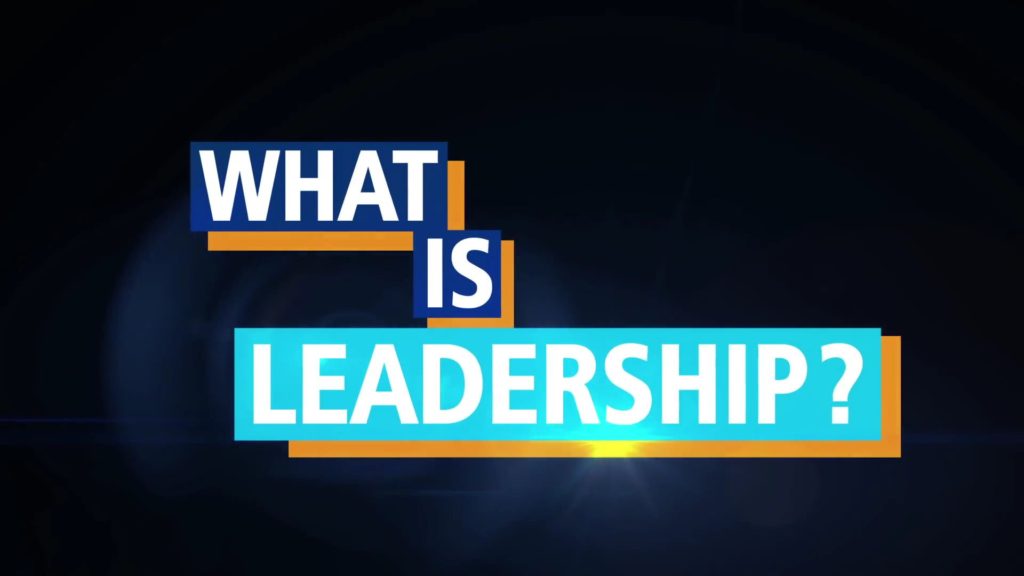
Kruse states that leadership has nothing to do with:
- Titles
- Personal attributes
- Management/style
- Paths or qualities
Peter Drucker states: “the only definition of a leader is someone who has followers”.
Warren Bennis states: “leadership is the capacity to translate vision into reality”.
Bill Gates states: …” leaders will be those who empower others”.
John Maxwell states that “Leadership is influence – nothing more, nothing less”.
So, when you look at what these great leaders are saying about leadership and the implied qualities in leadership you come up with these words:
- Influence
- Has followers
- Can empower others, and
- Can turn vision into reality
However, when you look at these implied qualities of leadership, there are many leaders throughout history who have had these attributes, yet who have not been immortalised as “good” leaders, viz. Hitler, Idi Amin, Charles Manson etc.
*(We will discuss these issues on “bad” leadership in a later section.)
NB: For the purposes of this exercise we will assume that a great leader will necessarily have good communication skills in order to achieve the above.
As you go through this article, it may be useful for you to assess the qualities espoused through these lenses: if a leader can empower others – what desirable leadership quality does that imply?
If a leader can turn vision into reality – what leadership quality does that imply? And so on.
I encourage you to make your own assessment about the leadership qualities you relate to, specifically.
In summary: in order to have meaningful dialogue on any topic, especially when we are talking about leaders, leadership and leadership qualities, it is useful to define the terms succinctly so that our frame of reference during this post, is clear, so everyone can understand more easily. Also implicit in those four items you might start to ponder your own questions. If someone has influence, what qualities does that imply for good leadership? If someone can get a large number of followers what attributes does this imply a leader must have?
The above discussion necessarily leads to examining a framework to establish whether leaders are ”born” or whether leadership qualities can be “taught” or “learned.”
3.How Nurture v Nature Influences Your Path
Nature
One notable leader, Roger Hamilton, in his book titled: Your Life Your Legacy,
has developed a wealth profiling system based on the ancient Chinese system of the I Ching. This is, in effect, a personality profiling system.
Hamilton states that … “ if you follow the path of least resistance, based on your natural habits and talents, those innate skills you were born with, and follow and utilize those skills religiously, along a particular chosen path, we then give ourselves the opportunity to achieve our true potential.”
Intrinsically, this means that, with his model of personality traits, qualities or attributes and skills, those each person is born with, innate skills that, if utilised efficiently and effectively, will allow that person to get into flow and increase their natural wealth. This is because they will be utilising those skills, they are really good at and do not find hard to do.
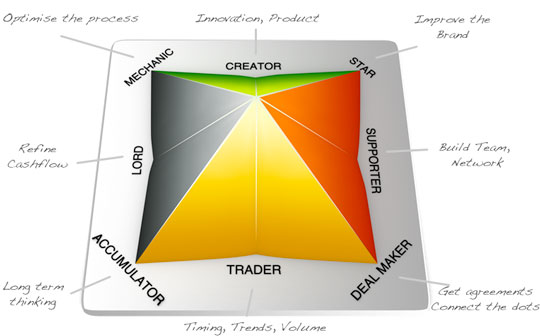
You can see from the diagram that there are eight different personality profiles, each with specific innate skills, talents and abilities attached. Without going into too much detail because you can read about this in his book, Your Life Your Legacy the profile that indicates superior innate leadership qualities, is called a Supporter.
Hamilton states that … ”Supporters are busy lighting up others. They are the strongest leaders, because they can translate value into action through people.”
From above, the generally accepted definition of leadership being: Leadership is the art of motivating a group of people to act towards achieving a common goal. This definition implies certain skills, talents and abilities and qualities.
And. When compared to Kruse’s definition of leadership: Leadership is a process of social influence, which maximises the efforts of others, towards the achievement of a goal’… you can see the common thread.
Nowhere do these definitions mention that leaders need to have specific leadership qualities in order to be considered a leader, a “good” leader, a “great” leader, or even a “bad” leader.
Hamilton goes on to state that … ”the role of the CEO is to be out there energising people and turning this information into action.”
So, in this Wealth Dynamics Framework, the personality profile that most closely relates to those definitions above, is that of the Supporter.
“Supporters are masters at energising teams by giving them
the confidence they need to succeed.” R Hamilton.
Nurture
The other side of the coin is that researches and educationists have observed why, how, and what leaders do, and have proposed a list of qualities and attributes that they attach to people defined as “good” leaders, or leaders who have great leadership qualities.
If you look at any skill you want to learn, it is suggested that you break it down and take baby steps and practise, practise, practise in order to improve your basket of skills.
Anyone can learn certain skills. But the real question is: will someone who has “learned” a particular skill v someone who has been born with an innate skill, talent, ability, attribute or quality, be a better leader?

If someone has natural ability and does not hone those skills sufficiently over time, will they be left behind in the rankings? Everyone still needs to practise.
Witness certain tennis players. Roger Federer appears to have great innate, natural alibility on the court v Andy Murray, who appears to have to work hard to keep his ranking. True, Federer hones his skill so that he can perfect his natural skills. But the key is that his innate ability surpasses those around him who appear to have to work harder.
When Federer works the court, utilising those innate skills or qualities, he gets into flow. And. Flow means the path of least resistance. When you utilise your innate skills, talents and abilities, those innate leadership qualities so prised by educationists and strategists, your work, your leadership, will flow easily and effortlessly. You will get the team to follow you. You will be able to increase each person’s confidence. You will be able to turn that energy into value and action.
In summary: There are two schools of thought around leadership qualities, nature v nurture. Natural born leaders v learned leadership. If you have innate skills your role will be easier. However, to become a great leader, both schools need to be continually honing their skills.
So, this then leads to a discussion of why you should learn the main leadership characteristics, attributes or qualities so you can come to a meaningful decision about what you think is important, because, from the discussion below, you will see that there is huge discrepancy between lists. If this is the case then you have to ask why is this so?
4. What’s to Learn About Leadership Qualities
There are many leadership gurus who have written articles and books, who have developed courses, and who are considered to be examples of good leaders, on the topic of leadership.
Some say there are basic leadership qualities that everyone should know.
Others state that there are essential leadership qualities or necessary leadership qualities that everyone should adopt and follow. Others mention “desirable leadership qualities”.

Still others say that there are “good” leadership qualities that need to be generally accepted because most leaders display these qualities.
It is important to learn what people think the main leadership qualities are so that you can make a meaningful comparison and decide for yourself what is important, what is essential, what is innate and what can be “learned” and improved.
Self-empowerment comes through knowledge. Through understanding. Through comparison. If you are choosing to follow the leadership path it is necessary to become aware of these traits.
Innate leadership qualities, such as being able to inspire people and being able to build their confidence, may well be qualities that cannot be taught successfully. Take a read. You decide.

Tony Robbins states that there are six basic leadership qualities that everyone should know and follow:
1. confidence
2. focus
3. honesty
4. positivity
5. decisiveness
6. ability to inspire
When you look at Roger Hamilton’s framework on personality profiling, you can see that his number one ingredient was “confidence”. A true leader needs the ability to be able to engender confidence so that people will follow, necessarily. This also means that, one of the number one ideal leadership qualities is, the alibility to inspire others to follow along.
“If your actions inspire others to dream more, learn more, do more and become more, you are a leader.” Simon Sinek
John C Maxwell has outlined 21 Irrefutable Laws of Leadership in his book.
Some of the main leadership qualities espoused for “good” leadership include:
- Honesty and integrity
- Confidence
- Inspire others
- Commitment and passion
- A good communicator
- Decision-making capabilities
- Accountability
- Delegation and empowerment
- Creativity and innovation, and
- Empathy
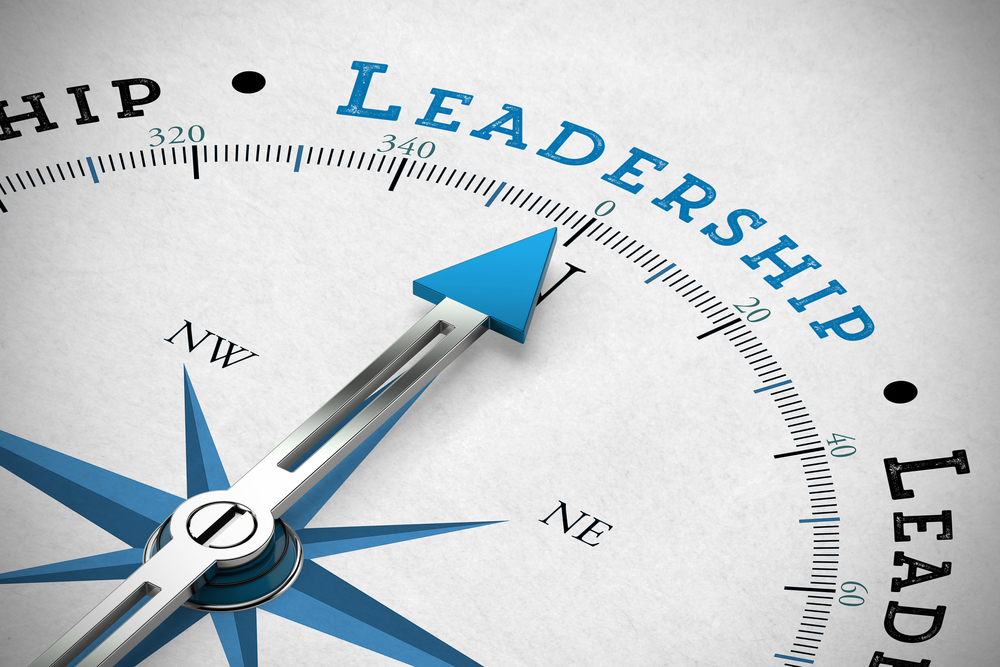
This list co-insides with Tony Robbin’s list with the words: confidence and inspire others. However, Maxwell adds the notion of “empowering others” and having empathy in order to get these people to follow along. In order to get people to follow along you must be able to have some kind of empathy. This adds to our intrinsic list of ideal leadership qualities. To be able to get people to follow you. You must have empathy with them.
Brain Tracy indicates that there are 7 leadership qualities of great leaders
- Vision
- Courage
- Integrity
- Humility
- Strategic planning
- Focus and
- Co-operation
Tracy fleshes out these implied leadership qualities by having people hook into the vision of the organization and by adopting strategic planning/executing that vision, in order to carry out the business of the organisation to the desired end. This makes sense when you tie this back to our original definition, because the leader needs to be able to turn the vision into reality.
In our original definition of leadership and leadership qualities, there were very few attributes, personality traits or characteristics or qualities that a leader needed in order to be considered up to the task. They were implied within that short list.
Restating that original list from above:
- Energising people – to follow
- Turning information into action
- Inspiring confidence in followers
- Having social influence
- Maximizing the efforts of others towards the achievement of a goal
Nowhere in the definitions of leadership, does it state that leaders need a certain number of traits or particular leadership qualities in order to be considered a “good” leader.
My objective here is for the reader to self-empower by drawing out their own list of ideal leadership qualities from the original definition, and from the discussion of the literature.
The definition: “Leadership is a process of social influence which maximises the efforts of others towards the achievement of a goal.”
So, what has happened over time is that people have observed what good leaders do, and appear to be, and have assigned superior qualities to those individuals, because when these leader’s traits have been examined, certain attributes have stood out.
In an article written in Forbes Magazine, Kimberly Fries outlines 8 Essential Qualities That Define Great Leadership. She has based her observation on the fact that employees do not trust management and that perhaps leaders need to change to adapt to the increasing number of millennials inhabiting corporations. These include:
- Sincere enthusiasm
- Integrity
- Great communication skills
- Loyalty
- Decisiveness
- Managerial competence
- Empowerment
- Charisma
These attributes, those espoused as being attributed as great leadership qualities, although well thought out and obviously meaningful to a certain group of individuals, appear to be a list of attributes that inspire millennials. Yes. It would be nice to have those skills. But. Being a leader has nothing to do with being able to “manage” staff. Yes. A leader needs to be able to “empower” followers. However, what a good/great leader would do is, surround himself/herself with very competent people underneath, who can manage the team and the day-to-day.
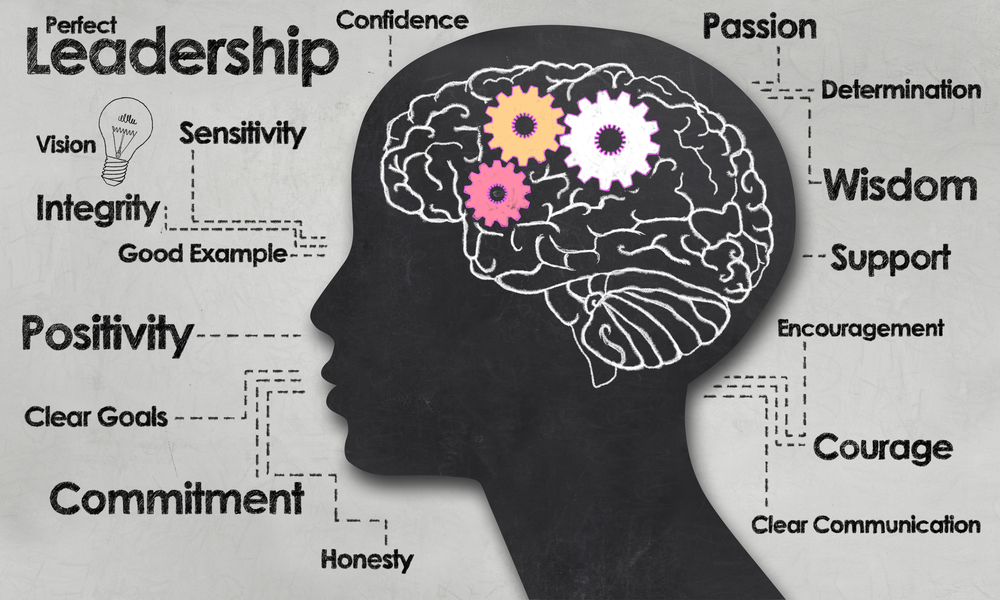
Still others have outlined what The Characteristics of a Good Leader are:
- Honesty
- Ability to delegate
- Communication
- Sense of humor
- Confidence
- Commitment
- Positive attitude
- Creativity
- Ability to inspire
- Intuition
You can see that there are very few common leadership qualities that continue to be highlighted, and which are consistent with our definitions.
- Confidence and
- Ability to inspire
- Empowerment
And these are the only three that correlate to our definition of leadership and leadership qualities.
In summary: matching our definition of leadership and leadership qualities with the framework, and having compared and contrasted articles that outlined lists of basic, essential, necessary or good leadership qualities a person must have in order to be considered a leader, we can see that people do not agree. Very few qualities match the definition of leadership, which has been outlined as generally accepted in our English language dictionary, and which has been matched with the research that Kruse has done for his article on leadership.
So, if you aspire to be a leader, or a good or great leader, you will need to work out what qualities you have already, and then hone or upskill, or adopt new attributes, accordingly.
Other researchers have delved even further and have come with such long lists that it could be considered overwhelming, or at best, a “wish list” of desirable leadership qualities.
5. Is There a Consensus on “Good” Leadership Qualities
In this article, Downard outlines what he thinks are the 101 most notable, crucial leadership qualities, and he separates them under different headings.
Some of these have already been outlined above. But most of them appear to be a collation of every possible leadership quality that has ever been thought of, on this planet, in this life time.
There may be more. They all stem from a collated overview of the most often mentioned characteristics or traits of good leadership qualities.

These are combined skills, qualities, characteristics, personality traits and other attributes and desirable traits..
Downard has listed these under 7 separate headings in order to make it more manageable:
- Personality Traits
- Self-Awareness
- Communicate
- Delegate
- Agility & Adaptability
- Cultivate Wisdom
- Effect Change
Here is a thoughtful list of the most “commonly agreed upon”, ideal leadership qualities on the internet. These include:
- Create a communicative friendly environment
- Be vulnerable and build trust
- Motivate people to move in the same direction
- Develop your emotional intelligence
- Prioritise people over profits
- Have humility and stay humble
- Coach and empower others
- Foster a learning environment
- Be accountable and transparent
- Lead through change and adversity
Check out this video on Leadership Skills: Qualities of a Great Leader
Qualities of a Great Leader
The Expanded List of Desirable Leadership Qualities – Some are “Innate” and Some Can be “Learned”
Let’s look at combining Downard’s list above, and join those 101 crucial leadership qualities that with the list of those skills most often summarised on lists of desirable leadership qualities, above, and see what we get.
What we come up with is a huge list of desirable leadership qualities. Each of those desirable traits/leadership qualities can be expanded to incorporate the many and varied ideal traits, comprising an almost overwhelming list, for persons desiring to take on leadership roles.

1. Create a communicative friendly environment
– have standards, be self-motivated, inspire confidence, be positive and
have optimism, develop good listening skills, be present,
2. Be vulnerable and build trust
– develop emotional control, have maturity, be authentic, be
compassionate, trust your team, allow your team to know you at a deep
level, take responsibility, admit mistakes and allow others to do the same
3. Motivate people to move in the same direction
– have appreciation for self and others, love your own career, be grateful,
be able to identify strengths and weaknesses of staff, share your vision,
understand what motivates others, enjoy the ride, effect change and
improve the lives of those around you,
4. Develop your emotional intelligence
– have character, have a sense of humour, have passion, be likeable, allow
others to get to know you, develop charisma, develop self-assurance, be
open-minded, be focused, be intentional, be assertive, be independent
yet inter-dependant, be objective not subjective where appropriate,
above all have patience whilst delegating and developing strengths of
others, have high-energy
5. Prioritise people over profits
– take risks on people, manage risks and people, time management,
develop social skills, develop delegation skills, allow staff to take the
reins, allow staff to have decision-making authority, allow staff to
become responsible for their decision and outcomes from the job
or tasks, allow them to take control , be flexible in attitude and work-time
attendance, reward staff for performance and give appropriate feedback
when action is warranted, be resourceful, be organised, be performance
driven, have conviction to the team, the job and the outcomes
6. Have humility and stay humble
– be respectful to be respected, be reasonable, put yourself in others’ shoes,
be of service
7. Coach and empower others
– be engaged and engaging, tell your story/others’ stories, have the ability
to teach others, be able to evaluate effectively, foster potential
8. Foster a learning environment
– have perspective, develop speaking skills, empathy skills, develop
negotiation skills, develop social media skills and become socially aware
of trends, enable others to act, be able to translate your vision into strategic
action, pursue new experiences, keep up-to-date, read, follow other leaders,
be curious, be competent and upskill when necessary or delegate to others
who are better in certain areas
9. Be accountable and transparent
– have integrity, be ethical, be loyal, be able to get the best from your people,
have courage to do what is needed and when, be able to conduct effective
meetings with everyone having equal time to put forth ideas without judgment,
seek out advice, share successes, help others succeed, give good direction and guidance
10. Lead through change and adversity
– lead by example, build relationships, be bold, give feedback and be open
to receiving feedback and suggestions for improvements, be strategic and
be able to turn your vision into reality, set goals and expectations, be fair,
be agile and adaptable, have a sense of urgency and decisiveness, be
consistent,
be able to pivot or change direction fast when needed, be tough-minded, face
obstacles with grace, be street-smart, be strategic in thinking, be proactive, be
flexible, be able to manage set-backs and uncertainty, be creative, challenge
the processes to see if things can be done better… and so on…
In summary: Many writers of articles have created lists of desirable leadership qualities. There has not been agreement as we saw above.
If we go back to the original definition of leadership and the intrinsic leadership qualities within that definition whereby:
“Leadership is a process of social influence, which maximises the efforts of others, towards the achievement of a goal “… we can see that this means that it is action-oriented. A systematic series of actions which are devoted to a particular end. The role of leaders undertaking leadership may well not be about the qualities or attributes of a person. It may be about what they do. Not who they are.
Keep that in mind when you are assessing whether you have the necessary attributes or leadership qualities before you take on any leadership roles. It is a serious business. Do you have those innate skills, talents and abilities? Or. Do you have to upskill to make sure you have those qualities that “good” leaders are thought to have?
6. Surprising Results of Who Displays “Good” Leadership Qualities
Going back to our initial framework which highlighted Roger Hamilton’s Profiling System, and which showed that Supporters were the ideal candidate for leadership roles. Why? Because of the innate qualities with which they were born. Because this profiling system involved eight profiles, this means that each segment represents approximately 12.5% of the population. This means that only 12.5% of the population has innate leadership skills and that those leadership qualities and skills were based around being able to light up others so they can translate value into action, energising people and giving them the confidence they need to succeed. This then means that there remain examples of “good” leaders who do not have innate leadership skills.

From Roger Hamilton’s Wealth Dynamics framework, here are a list of people who are considered “good” leaders yet who have not been born with the innate skills, talents, qualities and abilities necessary to be considered “good” leaders. This means that their journey will have been be harder or will have taken longer to achieve
They will also have needed to surround themselves with more competent people in order to take that pressure away from them not doing those tasks that they are not good at, viz. actual leadership, carrying out the vision and turning it into reality. In that way they will blossom, concentrating on their own innate skills, whilst allowing those who have the necessary and relevant “innate” qualities, be allowed to get on with their own Supporter leadership roles.
Creators – who have leadership qualities
Successful Creators delegate everything except the creative process. They increase their wealth by focusing on creating new products and services and leave others to take care of the day-to-day. They do not make the best managers.

Founder of Walt Disney
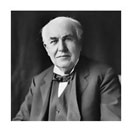
Inventor, businessman

Founder of Microsoft

Founding Virgin Group
Stars – who have leadership qualities
Stars (the profile, not an actor), increase their wealth by maximising their personal magnetism. They create a brand or identity and can utilise other people’s products and services to their advantage. That is how they attract people to their brand. They also make poor managers.

Entertainment Entrepreneur

Businesswoman, writer, television personality
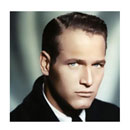
Actor

Indian Flim Actor
Supporters – those who have been born with innate leadership qualities.
This means that their journey to the ultimate position, the pinnacle, whereby people will follow them because of who they are and what they represent.
Supporters need to attach themselves to a rising Star so that they can mobilise the team around that person, brand or entity. They make the best leaders.
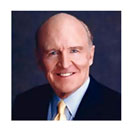
Chairman & CEO of General Electric (1981–2001)
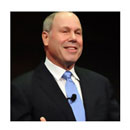
Entertainment Executive

Former Chief Executive Officer and Chairman of America Online (AOL)

Deal Makers – who have leadership qualities
A Deal Maker’s wealth grows by becoming more accessible. They spot and make deals and connections. They bring people together. They do not manage or lead them.

Cofounder, DreamWorks Animation SKG Inc. (Cl A)

Co-founder of Kohlberg Kravis Roberts & Co

American-Australian Media Mogul
Traders – who have leadership qualities
Successful traders buy and sell assets but rely on timing to try to control the outcome on both sides. They do not make good managers or leaders of people.

Investor
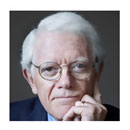
American Investor
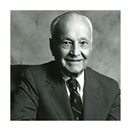
Investor, Fund Manager, and Philanthropist
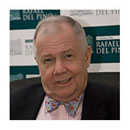
Chairman of Rogers Holdings
Accumulators – who have leadership qualities
Accumulators collect assets. They do their homework. They are not good managers of people.
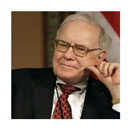
CEO, Berkshire Hathaway

Banker, Financier

Chairman, CK Hutchison Holdings

Chairman of the Seattle Seahawks
Lords – who have leadership qualities
Lords collect and control the cash generating assets. They value numbers over people. They do not make good leaders of, or are able to manage people successfully.
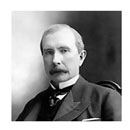
Founding and Leading the Standard Oil Company
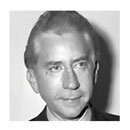
American-British Industrialist

Chairman and CEO, ArcelorMittal (ADR)

Sergey Brin President, Alphabet
The Mechanic – who have leadership qualities.
Mechanics are all about creating a better system. They need to have their fingers in the pie. They manage and develop better systems for business. They delegate other functions to teams. They are not managers of people.
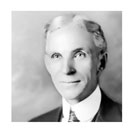
Founder of Ford Motor Company
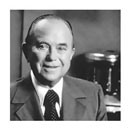
Businessman;
Franchisor

Founder of Walmart and
Sam’s Club

Founder of IKEA
*All of these people are considered leaders/good leaders in their field, whether it be entertainment, computer technology, share acquisition or doing real estate deals. They all have desirable leadership qualities. People aspire to match these traits and qualities.
*How they have become prominent in their field is that they have leveraged off people around them. Hired the best people to manage, lead or engage with staff, so that they can get on with the tasks that they are good at.
*They have followed the path of least resistance and used their habits and talents, the innate ones they were born with, and followed that path in order to achieve their true potential. They have gathered better people around themselves in order to flourish.
*That is what “learned” leadership is about. They either “learn” the necessary skills, adopt the necessary traits or qualities, or, most often, get very competent people around them to do the tasks that they cannot do well.
So, what happens when people outline lists of the essential, basic, necessary or strategic leadership skills or qualities that leaders ideally “should” have, is that they look at leaders, from any field, not knowing whether they have “innate” or “learned” skills. They then list qualities of those people, all of them and lump them together, into one list. Then they say: “these are desirable and necessary and essential qualities that most leaders should have. Now, go and develop them.”
You can see that this approach leads to an overwhelming list of desirable leadership qualities. So, if you feel that you do not have at least 50 of the above leadership qualities, do not stress. Start with the basics. (We will discuss later, the best way forward for you if you want to discover your leadership potential.)
In summary: there are people who do not have natural born leadership qualities or skills who have risen in their fields. They have become, or are considered to be, leaders in their field. They have become leaders in their field because they have stuck to, and developed their innate skills and talents. If they do not have specific leadership skills, what I call “true leadership” skills and qualities, they have hired competent people around them who will perform tasks that these leaders do not want to do or are not really good at, so they can get on with utilising the real skills and talents they have. In this way it appears that they are “good” leaders. A distinction: they are “good” leaders in their field of entertainment, real estate buying and selling, networking and so on, in that they are the person out the front with those particular skills and talents. However, they do not necessarily display “good leadership qualities”, because the real leadership is being done by their Supporter/CEO.
This leads us to the discussion of “bad” leaders who display good leadership qualities, and how we can distinguish the two groups.
7. Can “Bad” Leaders and “Bad” Leadership Qualities Really be Articulated?
“Bad” leaders who display “good” leadership qualities
You cannot have a discussion on leadership qualities and who is a “good” leader without looking at a few people who have become leaders, and display some of the “good” leadership qualities espoused above., but who are now considered “bad” leaders. These people are considered “bad” leaders because their purpose, the end goal, was not considered to be for the good of others. The end game was considered to be ill-informed or, in fact, evil.

Examples of so-called “bad” leaders include:
Adolph Hitler
Idi Amin
Charles Manson
Pol Pot
Joseph Stalin
Remembering our original definition of leadership and the intrinsic qualities of leadership that this entailed:
“Leadership is a process of social influence, which maximises the efforts of others, towards the achievement of a goal.”
These people listed above, were all natural-born leaders. They were born with the ability to:
- Instigate processes to gather a large group of followers
- They somehow maximised the efforts of others – in fact thousands of people (to do more harm than good)
- They had a specific goal in mind, and
- they were able to influence large numbers of people to mobilise towards that end goal.
My personal thoughts on this issue is that because “bad” leaders were also observed to have “good” leadership qualities, in that they could mobilise people to follow a message to an end result, and somehow were able to give their followers the confidence to succeed. They were able to motivate these followers to that end. So, in order to separate the “bad” leaders from the “good” leaders, people started outlining lists of qualities or traits that would clearly delineate these two groups.

Implicit in the distinction between “bad” leaders and “good” leaders is the outcome, the end goal, the purpose or vision and achievement of that vision. If your purpose is for evil, as perceived by a large number of people outside your organisation, then this may well be one of those leadership qualities that needs to be spelled out clearly.
**A very necessary leadership quality that needs to be adopted is one of purpose benefiting the good of mankind in some way. Just a thought.
Hence the titles of “good” leadership qualities: essential qualities, basic qualities, necessary, strategic qualities, qualities of good or great leaders and so on. And. From that sprang the educationists and strategists who deemed that in order to be a “good” leader, you would need to undertake study for several years, at a university, and possibly gain a masters’ degree as well. By implication, thus giving a leader inherent status and position of authority due to that higher level of education.
In summary: there have been many “bad” leaders throughout history, yet they all seem to have had many of the requisites of good leadership qualities according to our lists and definitions. In order to be able to distinguish between “bad” leaders and “good leaders, you have to delineate the purpose of the group following that particular leader. This implies “good” intention, not an “evil” intention or outcome.
Ok. So, we know that there were “bad” leaders who had “good” leadership skills, but what are those skills we now consider normal bad leaders to have, i.e. not social psychopaths
“Bad” leadership qualities
An article in Success magazine titled: 15 Traits of Terrible Leaders outlines the following:
- Bad leaders have lack of transparency
- They do not listen
- They dismiss other’s ideas
- They value experience over potential
- They are ego-driven
- They work 24/7 and do not develop other social skills
- They have a lack of empathy
- They forget about developing leadership in others
- They may be overly conservative
- They do not stop office gossip
- They have poor communication strategy
- They are close-minded
- They are inconsistent
- They may be slow to adapt
The consensus in this article indicates that for some reason these types of leaders and the qualities they display leave a lot to be desired. Quite frankly, it seems that these people really do not have the necessary, essential or even basic skills to be in a position of leadership. For some comic relief take a look at this short video on Bad Leadership Qualities Skit
Other lists of “bad” leadership qualities that people hate
Include:
- Avoids or does not deal with conflict
- They do not empower others – it’s all about them
- They never show vulnerability
- They fail to see the strengths of their team
- They never take responsibility/no accountability
- They just don’t listen
This list also indicates that these types of leaders have qualities of being ego-driven and self-centered. No. These are not “bad” leadership qualities. They are qualities of people who should not be in this leadership role.

So, how could these skills or leadership qualities be addressed, improved or worked on?
It seems to me that most people avoid or do not like confrontation or conflict. This means that this leader needs to undergo a communications course or a coaching training that will give him/her skills to be able to deal with those issues, should they arise.
A person who power-trips could well be misguided as to what a leader’s position really means. They may be shy or feel weak themselves, especially when they come up against a co-worker who was over-looked for a similar position. I believe that this type of issue could well be resolved with a communication or coaching course.
People who do not show vulnerability never have and have learned this behaviour during childhood. They have been taught that this is a sign of weakness. This is a very common leadership quality that can easily be worked on. Many, many people would benefit from a communications course or individual coaching.
Leaders who fail to see the strengths of their team probably do not recognise their own worth and they therefore project onto others. This issue of leadership qualities that need to be worked on, falls into the similar category as all of the above. These are basic communication issues and coaching issues.
When a so-called leader does not take accountability it generally means that they lack communication skills and have been brought up in an environment of “victimhood”, of blaming others, of not seeing how or why behaviour occurs or derives in a person’s life.
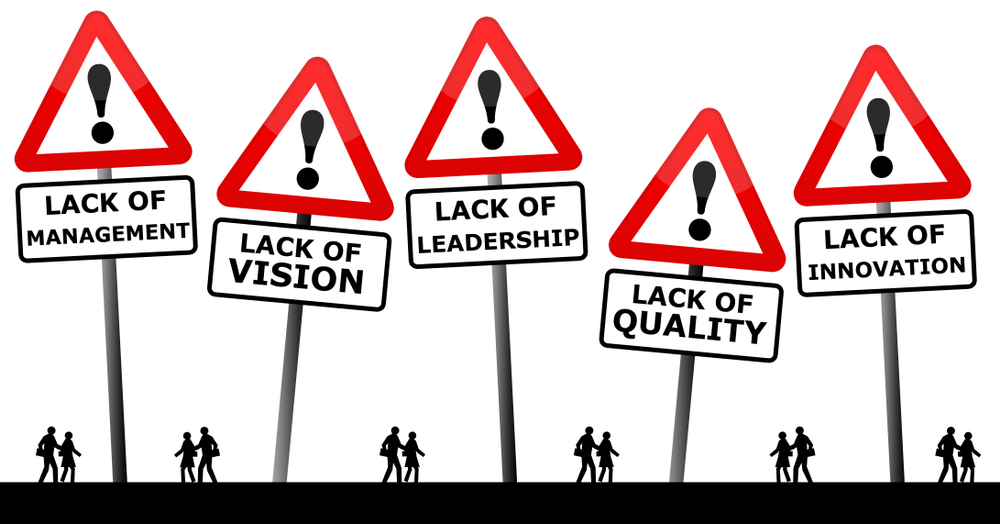
When a leader does not listen, it means they are fearful of being found out as being inadequate. They feel they need to be in control and not show weakness. Not showing vulnerability. It means they are incapable of seeing strengths in others. It means they will avoid conflict or confrontation. It means they do not truly understand the role of leadership and what qualities a leader needs to possess in order to be effective. It means he/she will over-inflate their self-importance to show strength rather than be open and be able to listen effectively.
These leadership qualities can be worked on with an in-depth communications expert course. A series of coaching sessions. Or a coaching course. The fact that these skills/qualities seem to crop up over and over again as either “bad” leadership qualities, or leadership qualities that need to be worked on, means that there is serious lack of understanding about leadership, leaders, and what those terms and roles mean within an organisation.
John C. Maxwell
See: For A Free Leadership Training – John C Maxwell
Other lists of “bad” leadership qualities include: Andrew Thomas’ article on this topic outlines the traits below:
- They think they’re the best at everything
- They are not into self-growth
- Their actions don’t match their words
- They surround themselves with “yes” men
- They can’t deal with conflict
- They don’t take your input
- They try to control everything
- They focus on features instead of performance
- They don’t create a company culture
- They don’t censor what they say
- They care more about money than customers
- They are ego-driven
- They are overly-optimistic
- They never ask for help
- They don’t learn from their mistakes
This list indicates that there is huge resentment about the type of person, called a leader, and who has theoretically, “leadership qualities” but who demonstrates really “bad” leadership qualities.
In summary: these lists of “bad” leadership qualities, indicate that whoever has placed these people in these roles has absolutely no idea of the definition of good leadership, good leadership qualities or the role and function of a true leader. If you come across these types of people who are leading an organisation as either an owner or CEO, I would suggest you run for the hills.
So, if there are “bad” leaders, or people who have undesirable leadership qualities, what can be done about this? What skills can leaders work on, if any, to improve their leadership?
8. What You Need to Work On
Just as there are “bad” leadership qualities that need to be highlighted and those type of leaders need to be called out, avoided or simply sacked, there are, understandably, if you come from the “nurture” model of leadership and developing leadership skills, there are identifiable skills or leadership qualities that can be improved or worked on.
An article written in Forbes Magazine :
…highlights some of the main leadership qualities that need to be worked on.
- Be approachable and trustworthy
- Surround yourself with people who are smarter than you
- Acknowledge your mistakes
- Delegate effectively
- Serve selflessly
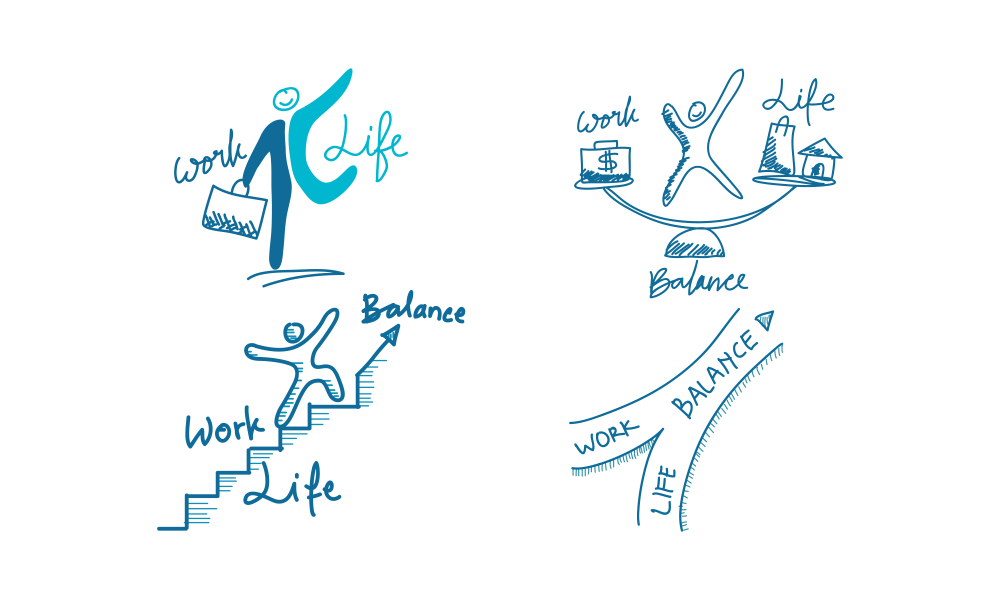
From some of the articles above, we have seen that people believe that anyone can be a leader. And. In fact, if you have superior skills in a trade, hobby, career or profession, and you are out the front directing people in some way, then theoretically you can be considered “the leader” of that group, at that time, until someone else comes along who has superior skills, talents or abilities, and surpasses your knowledge or skill.
All of these leadership qualities to work on can be achieved with the correct training in those areas. It is a matter of upskilling, of being teachable or coachable. It is also a matter of being vulnerable, being able to trust the team, and knowing when to back off.
My personal list, that appeals to a sense of desirable leadership skills, that can be worked on include:

- Understand your own strengths and weaknesses – this allows you to be vulnerable and be seen to be more human and you will be able to see others more clearly
- Care about your health because being well spills over into every facet of your life. You will be able to promote a culture of wellness within the organisation. (www.wellnessthatworks.com.au)
- Be a role model and set a good example. Do what you say you will do and always follow-through. Even in hard times you need to be able to hold the space of integrity. This promotes good leadership skills and people will be more likely to follow you because of what you stand for. (www.leadershipandcorporatewellness.com.au)
- Care about the employees. Truly. Nothing beats this for authenticity. People will see through you if you are not more transparent. More vulnerable and more empathetic.
- Always see ways of increasing your learning. Be open to reading, studying, doing courses and adopting new methods and ways of improving. There is always something that can be learned from other leaders. Following social media relevant topic trends or simply following other influencers who may have more knowledge than you in certain areas.
- Don’t’ make excuses. If you are in the habit of blaming others then people around you will be wary of you. This shuts off two-way communication and employees will learn not to trust you. Accept responsibility. Own your mistakes and show vulnerability. This will increase your trustworthiness.
- Be of service. Serve in your community as well as in your organisation. People will follow when you give them good reason to. In your immediate community outside of work, you will be able to develop a reputation for having “good” leadership skills and qualities. This external, independent assessment by others, will enhance your leadership potential. Once this happens and your reputation for “good” leadership grows, then by osmosis, your ability to lead your team effectively will also grow.
Take a look at Brian Tracy’s video on how to improve your leadership skills:
In summary: Increasing all of those skills and working on those leadership qualities will improve your position as a respected leader. A leader who cares. A leader who can be vulnerable. Who can take responsibility? Who is the type of leader who emanates desirable leadership qualities easily and effortlessly because they are ingrained? Part of your core of who you are.
Ok. So, if we can see that there are skills and qualities of leadership that can be worked on and improved, should we go the informal route of learning-on-the-job? Or. The formal route, by undertaking study doing a specific course of education?
9. Where to Find the Best Leadership Education
In Section 1 We looked at why leadership, good leadership and the development of leadership qualities are seen as being so important.
We found that in order for corporations to be successful and growth- oriented they needed to attract leaders who had superior leadership qualities such that they could lift the competence of an organisation above ordinary and into extraordinary – from good to great.

Since then leadership courses have been developed and have been included in many university courses and curriculums. There are undergraduate and post graduate degrees, as well as private schools for developing leadership skills, qualities and enhancing the communication skills, adopting methods and models to best utilise those skill and talents considered to be the backbone of a great organisation.
In Jim Collins’: Good to Great, he pondered how some companies can emerge out of ordinariness into greatness. He researched what these companies’ necessary qualities were that allowed them to achieve and sustain greatness as measured by growth, profits and share market capital and returns.
Part of his research indicated that there was a certain type of leadership required. These leaders had qualities that defied the normal organisation and which propelled their organisations to achieve and maintain greatness. They had to instil exceptional standards that soared above competence, change and rapid restructuring. These leaders, in effect, changed the DNA of the organisation to one of discipline and excellence.
Corporations have, before and since those findings, realised that in order for their corporation to move to a place above a level of competence or ordinariness, they need to spend time, effort and dollars developing those people singled out for leadership roles. Hence the proliferation and development of schools of management and leadership studies.

Some of the most prominent leadership courses worldwide, on business, management, leaders and developing leadership qualities include:
Stanford Graduate School of Business
Harvard Business School
University of California, Berkeley Haas
University of Hong Kong Business School
University of Oxford Business School
Also, if you click on this link, you can compare many different courses from around the world: https://www.masterstudies.com/Masters-Degree/Leadership/
Tip: There are many different courses to choose from: online or offline or a combination. To start, take a short course to see if you like the content before committing to a longer undergraduate of post graduate degree.
In summary: leadership courses and the recognition of those leadership qualities deemed necessary or essential for helping corporations move from good to great, are available all over the world. Either online or in-person. As additional post graduate or undergraduate degrees. Or through private colleges or expert leadership training courses. If you are in a leadership role you will need to hone your skills regularly.
Necessarily, it is useful to have an understanding of the different leadership styles so you are aware of the consequences for yourself, and the influences such style has on your team.
10. What Style of Leader Are You?
What has emerged from all of this research is that due to the differing combinations of personality styles, frameworks and approaches to leadership, from observation, it has been revealed that certain types of leadership styles have been identified.

These leadership styles include:
1. Servant leadership
Servant leadership means using your leadership skills to serve a greater good.
2. Democratic leadership style
A democratic leader is one who places high value on the diverse skills, qualities and knowledge base of their team. They will work to cultivate consensus within the group by consistently asking those around them
3. Visionary leadership style
Visionary leaders are at their best when it comes to finding new directions and new potential solutions to a given problem. This type of leader relies on abstract thinking and can envision possibilities that many others aren’t yet able to see.
4. Coaching leadership style
A coaching leader is one who spends a great deal of time and energy on the individuals in a given group. They will work on cultivating deep connections that allow for a more thorough understanding of an individual’s hopes, beliefs, dreams and values.
5. Affiliative leadership style
Affiliative leaders place high emphasis on a “team first” approach. Out of all the different leadership styles, affiliative leadership focuses most intensely on building trust within the group and creating emotional bonds that will promote a sense of belonging to the organization.
6. Pacesetting leadership style
A pacesetting leader is one who leads by doing. They set high standards for themselves in the hope that others will follow their example.
7. Commanding leadership style
A commanding leader is the kind we most often see in movies and read about in books. They approach leadership with an attitude of “do as I say because I’m the boss,” giving directives and expecting others to follow orders without question.
Here is a list of 9 Common Leadership Styles
1. Transformational leadership
– people who show transformational leadership typically inspire staff through effective communication and by creating an environment of intellectual stimulation.
2. Transactional leadership
– transactional leadership is focused on group organisation, establishing a clear chain of command and implementing a carrot-and-stick approach to management activities.
3. Servant leadership
– people who practice servant leadership prefer power-sharing models of authority, prioritising the needs of their team and encouraging collective decision-making.
4. Autocratic leadership
– a more extreme version of transactional leadership, autocratic leaders have significant control over staff and rarely consider worker suggestions or share power.
5. Laissez-faire leadership
– more commonly used to describe economic environments, laissez-faire literally means “let them do” in French. This is typically translated to “let it be”.
6. Democratic leadership
– also known as participative leadership, this style – as the name suggests – means leaders often ask for input from team members before making a final decision.
7. Bureaucratic leadership
– be engaged and engaging, tell your story/others’ stories, have the ability
to teach others, be able to evaluate effectively, foster potential
8. Charismatic leadership
– there is a certain amount of overlap between charismatic and transformational leadership. Both styles rely heavily on the positive charm and personality of the leader in question.
9. Situational leadership
– factors such as worker seniority, the business process being performed and the complexity of relevant tasks all play an important role in what leadership style to adopt for any given situation.
This gives you some idea of the types of styles and what situations they may be useful. Each has its own.
See the next article on leadership styles and try to work out what style you might be.
Here is another article titled: 7 Types of Leadership Styles
1. Democratic Leadership
2. Autocratic Leadership
3. Laissez-Faire Leadership
4. Strategic Leadership
5. Transformational Leadership
6. Transactional Leadership
7. Bureaucratic Leadership
In summary: you can see that in order to advance the topic of leadership and which leadership qualities could be considered “good” qualities v “bad” qualities to have, researchers, experts and theorists have broken down and further classified and categorised leadership into differing styles. I personally would imagine that this became necessary due to the fact that the lists of ideal leadership qualities kept growing and growing, and it would have seemed impossible for single persons to have all of the qualities listed above.
So, you can see that there is more consensus amongst leadership experts on leadership styles v leadership qualities. Each style has its pluses and minuses. Remember that when you start to classify who and what you are and your particular style as a leader, yes, you gain more information, but be open to learning or improving on those set qualities.
You can visit individual websites of leadership experts to take a quiz/an assessment to find out your leadership style.
Ready to find out what type of leader you are?
Take the Wealth Dynamics Personality Profiling Assessment to gauge your Leadership Potential: innate v learned.
11. The Final Analysis
As with everything in today’s world, if you can systematise something, put it into a framework, and decide on its’ importance, then you will probably find a course on it.
Leaders are simply people who have the most information about a topic at the time and who are the best people to show direction in a situation or on a specific topic.
Leadership is the pilgrimage, the journey though that topic.
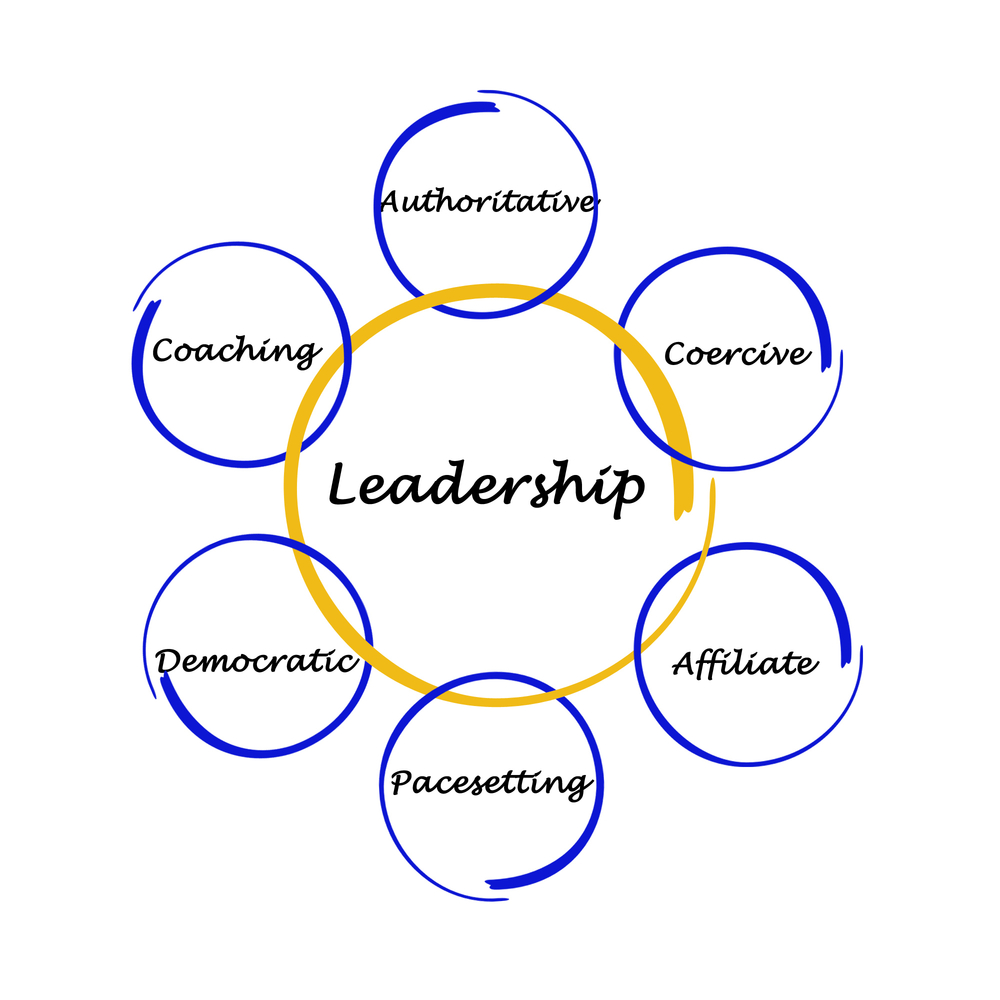
The topic of leadership qualities has taken on a whole world of its own in that somehow great prowess has been bestowed onto anyone called “leader.” They are almost revered for having super-human qualities, above and beyond the average person. Yes. There have been many unassuming leaders who do not stand out in a crowd, and who quietly go about their business, humbly and with great care and quiet consideration. Be sure, that when you are assessing which leadership qualities you think are most important, you do not confuse being bold and audacious with being a “good” leader. This may very well not be the case.
There are two schools of thought
- Leaders are born with those innate skills, talents and abilities and have specific leadership qualities, or
- Those who have been taught a model or a method and who have developed those skills within that framework or model of leadership.
Everyone can be a leader in a particular field. It takes time and practice to learn the skills and gain the respect from others who will follow you.
If you take on a leadership role, it will be easier for you if you have innate leadership skills and talents and the recognized skills of being able to get the best out of people, engendering confidence, so that these people will follow you towards an end.
If you do not have innate leadership qualities and skills then you will need to hone your skills much more that those people who are born with natural leadership qualities.

If you are serious about taking on a leadership role then you can do one of the quizzes re leadership style and/or leadership profiling to assess your starting position. (See above)
When assessing your skills and talents start with a values list and work on improving those skills first.
I personally do not believe that it is necessary nor possible to have all of the qualities listed above. However, if you want to leave a legacy, then upskilling, perseverance and taking the opportunities when they are presented, will help improve your leadership prospects.
Remember, true leadership is about the ability to invest in people and inspire them. You as a leader, have to grow in that role. You must achieve results or you are stagnating. You must build teams that produce. You need to be able to bring out the best in people by inspiring them with the confidence they need to succeed.
As you grow and gain experience you will extend your influence. You will know you are becoming a better leader when your influence reaches beyond your immediate community or organisation, and that you are also benefiting others who are not immediately known to you.
True leadership is about:
What you do
How you do it and
Why you do it
… in essence about your leadership qualities!
12. Dream of Becoming a Leader?
The dream you’ve had of becoming a leader, having great leadership qualities, “good” leadership skills, talents and abilities, need not be a fantasy.
It’s a completely achievable reality.
Sure, there is no magic pill.
Seek guidance from these amazing and trusted leaders.
And the best news is that it’s so easy to get started.
All the initial knowledge is spelled out in this post.
Decide if you really want to go down that path and become a leader, a great leader. Then, be prepared for ongoing study.
Simply take the quiz and identify where you sit on the personality profiling system and what that means for you. It’s a good place to start there.
And finally, be patient.
All your efforts will pay you back in the long run.
Take Leadership and Corporate Wellness Quiz
Are Staff Working Conditions Affecting Your Leadership Potential – A Short FREE Quiz for polishing highlighting areas for possible improvement Click here
About the Author: Celine Healy is a Writer, Speaker and Blogger, and is a Stress and Wellness specialist. She is passionate about mental health in corporations and overall wellness for individuals. Celine writes on topics of Stress, Leadership and Corporate Wellness, Mental Health, and Wellness Strategies for Individuals. Take the Quiz at my Blog, https://leadershipandcorporatewellness.com.au/ to see how your leadership rates with staff.
